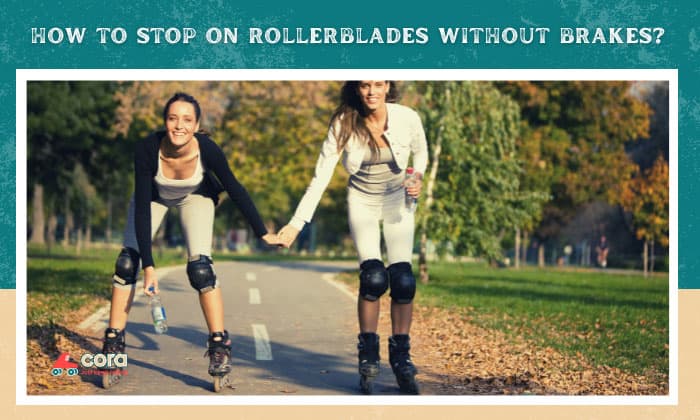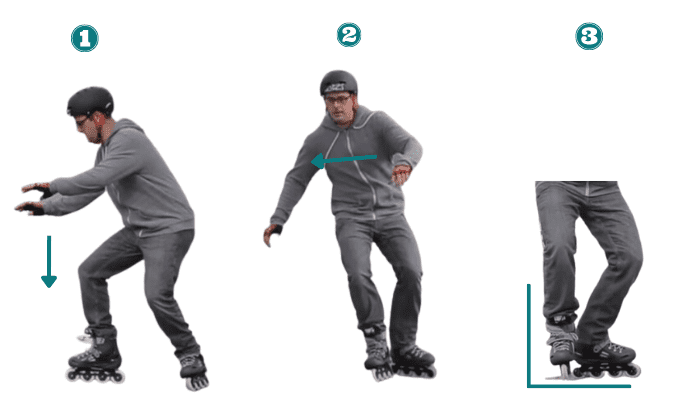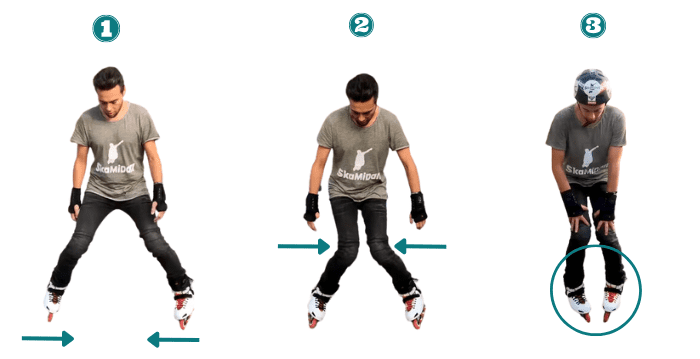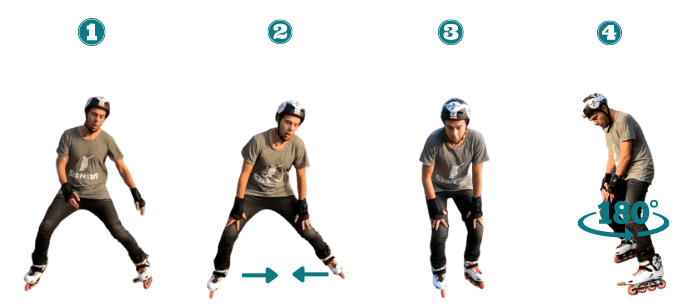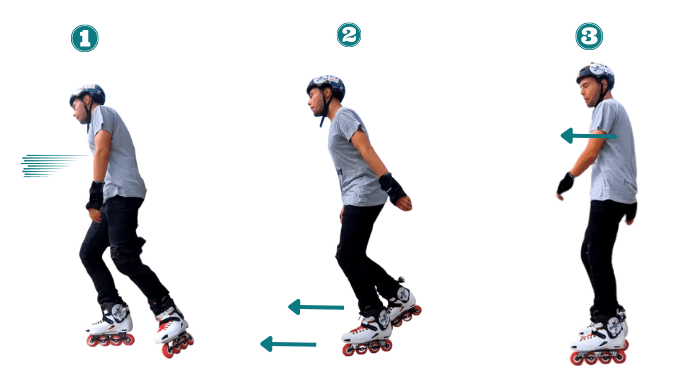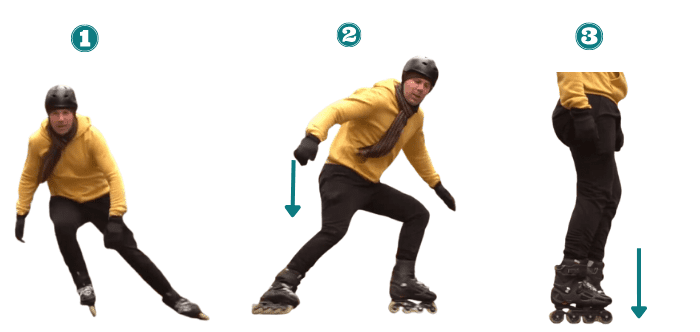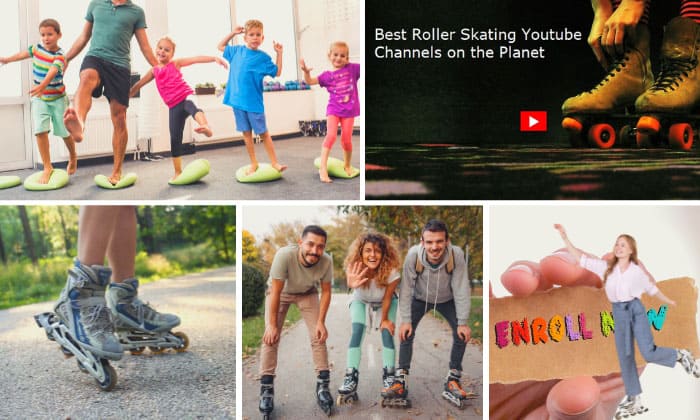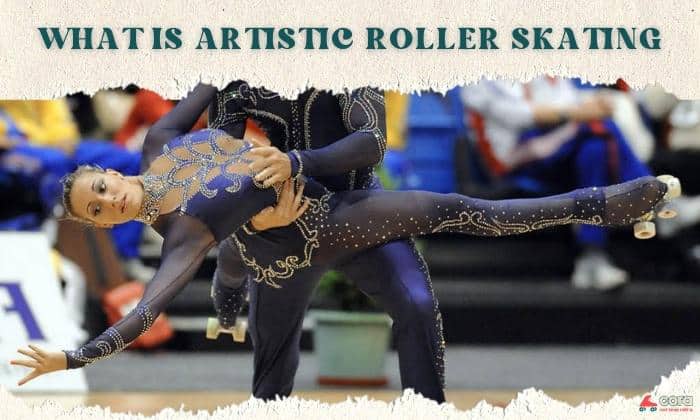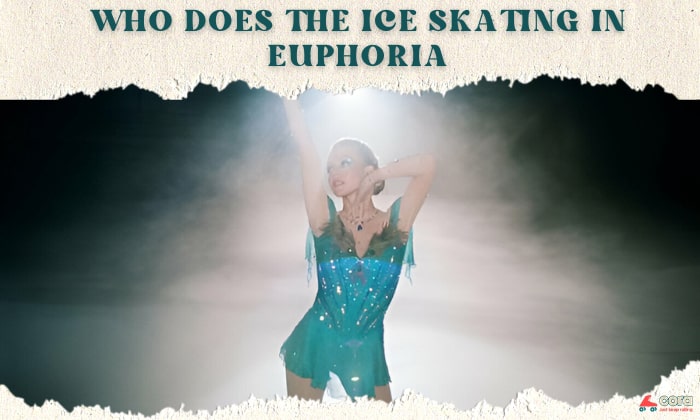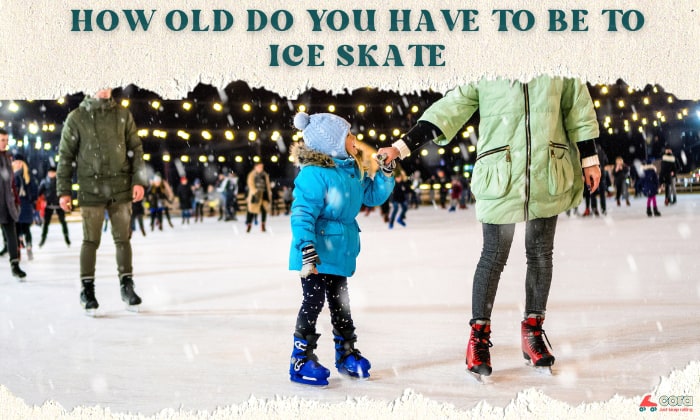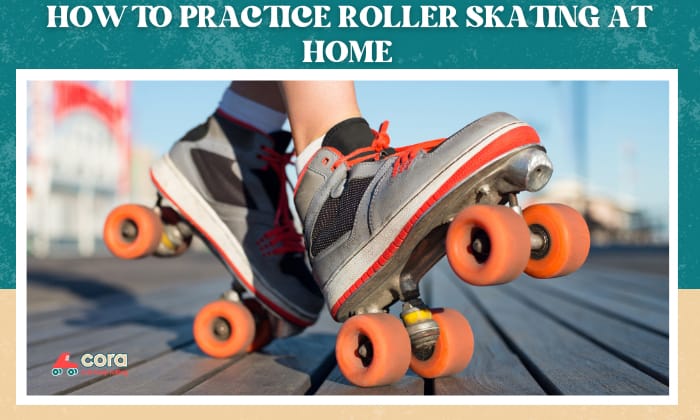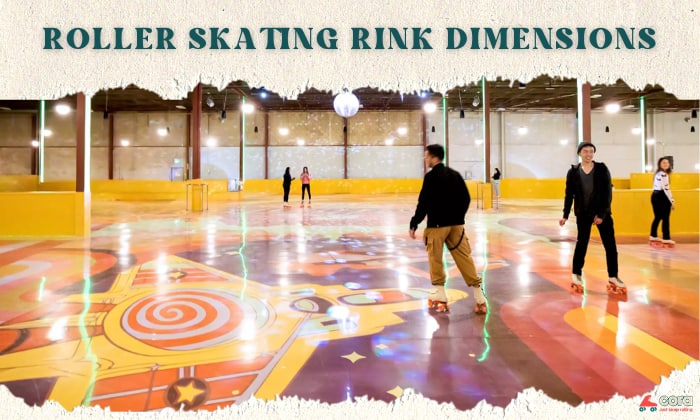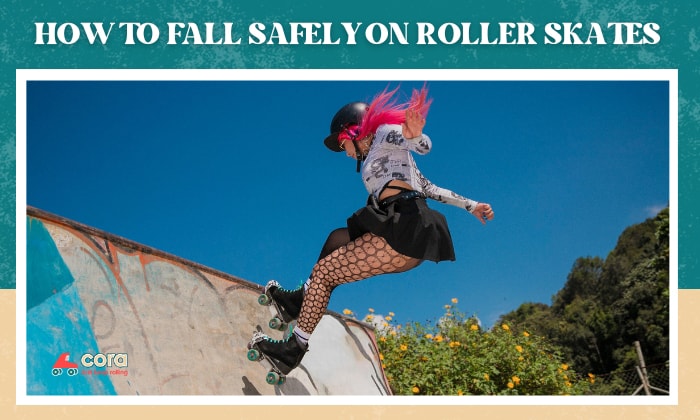Being able to stop is an important skill that every skater should have. But on top of knowing how to use brakes, skaters must know how to stop on rollerblades without brakes. This makes sure that they will be able to pull to a standstill whenever they need to, keeping themselves and others around them safe.
There are different techniques that one can employ to stop with no tor stops in this blog post, we will go through 6 different ones.
Keep reading to learn about all of them!
Page Contents
6 Ways to Stop on Inline Skates Without Brakes
Before attempting any of the techniques below, be sure to put on protective gear like a helmet, a mouth guard, knee pads, elbow pads, and wrist guards. These will give you more confidence to practice tricky moves and soften your falls.
This is one of the easiest ways to stop on inline skates without utilizing brakes. As such, it is a must-learn technique for beginners. However, this method can damage your wheels and bearings, so try to use it sparingly once you’ve mastered other techniques.
- Starting with your knees and elbows bent in a low stance.
- Slightly lean your body forward.
- Scissor your legs so one foot is in front and one behind. Shift the latter so it’s perpendicular to the former and let it drag, scraping the ground. This generates friction to slow you down and eventually pull you to a stop.
The trick to this rollerblading stopping move is placing most of your body weight on the front leg. Putting too much weight on the rear skate will result in you toppling forward.
To ease yourself into mastering the T-stop, here are a few tips:
- Practice standing still with your non-dominant leg off the ground for as long as you can.
- Try skating on one leg.
- Practice turning your feet to make the T position
If you feel like you are losing balance as you slow down on rollerblades this way, drop lower to re-balance yourself.
Stopping with rollerblades with no brakes is also possible the V- stop (aka plow stop). Here’s how:
- Space your legs a bit more than shoulder-width apart, then shift your toes inward while skating forward.
- As you do so, pull your knees closer together (but don’t let them touch one another) while pushing your calves further apart.
- Push your heels outward and dig your skates into the ground. Lean forward all while doing this. Ultimately, your pace will slow down and halt.
It will take some practice to acquire a complete sense of balance as well as control your skates. However, rest assured that this is an effective method to stop while rollerblading without toe stops.
This is the best way to stop on rollerblades when you are going at a moderate speed. In addition, it looks quite cool!
- With your feet shoulder-width apart (or slightly wider), bend your knees forward so that they’ll be directly above your toes.
- Shift your feet so that your heels point inward, and swing your legs into a semi-circular motion.
- Lean slightly forward—you can place your hands on your knees if you’re feeling unconfident.
- Rotate your body in the other direction, and make a 180-degree spinning motion. This will create friction that slows you down and pulls you to a standstill.
To prevent injuries while practicing this rollerblade stopping method, make sure that you start at a slow speed. Ramp it up later as you become more comfortable.
This is another impressive-looking way to stop on rollerblades no brakes. However, you will need to spare more time and effort practicing it.
- Shift your body so you’ll be skating backward.
- For this stopping on rollerblades technique, bend your front knee deeply and place most of your body weight on this foot—this should be your dominant leg.
- Stretch the other leg as far as you can. The foot of the trailing leg should be turned at an angle of 90 degrees to the leading leg.
- Let the trailing skate’s wheel drag onto the ground, which will generate enough friction to stop you eventually.
This is essentially lifting your skates and taking a couple of steps to put yourself to a standstill. It is not a technique that looks very cool, but it works. You can use it to stop while skating forward or backward.
- Before stepping, let yourself roll for a short distance to slow down first.
- Step with one foot, then alternate to step with the other foot.
- While stepping, your toes should be pointed slightly inwards. Lean forward just slightly to stay balanced.
The Slalom stop is a technique that you can use to halt when going fast on inline skates. What you will do is alternate left and right turns to cut your momentum and pull to a stop.
- Start by leaning forward with your knees bent to stay balanced.
- Bring up your chest but keep your hips down.
- Change directions sharply to slow your pace and let it stop you eventually. Focus on getting your edges to go from side to side.
You will also be glad to know that the Slalom stop is excellent for controlling your speed when going downhill.
Pros & Cons of Ways to Stop on Inline Skates Without Brakes
To determine the correct method of stopping safely in a skating scenario, you should know the pros and cons of each stopping move. We have summarized them in the chart here:
| Pros | Cons | |
| T-Stop Technique |
|
|
| Plow Stop Technique |
|
|
| Spin & Stop Technique |
|
|
| Hockey Stop Technique |
|
|
| Stepping Stop Technique |
|
|
| Slalom Stop Technique |
|
|
5 Tips for Rollerblading
To support your journey of learning inline skating, keep the following tips in mind:
- Get Quality Inline Skates: A good pair of rollerblades definitely makes a difference. It is important that you think of it as an investment.
- Do Balancing Exercises; There are exercises that you can do to improve your body’s balance, which is essential to roller skating well. Some that you can consider are single-leg dry land exercises, slack, Bosu, etc.
- Follow Roller Skate Youtube Channels: Many Youtube channels on roller skating exist for both beginner and professional skaters. You can follow them for helpful skating tips.
- Join Skating Groups: Look for local ones near you. Fellow skaters can practice with you and keep you motivated. In addition, you can learn a lot from more advanced skaters in these groups.
- Enroll In Online Roller Skating Classes: Online, there are a lot of courses for roller skating that you can enroll in to develop and hone your skills. Some are available free of charge, while some will require you to spend a small amount of money. You can choose a course depending on your budget.
Conclusion
As you have read, there are many choices when it comes to stopping on inline skates that have no brakes. Some are easier to do than others. But all are effective methods for guaranteeing your safety while roller.

Harrison is a skating enthusiast who picked up the sport during her student exchange years in Canada. She has been a skating coach for children and teens for 3 years and now holds classes as a freelancer. Harrison entwines her experience leading skating classes in the content published on Cora to help readers fall in love with skating, just like she did.


